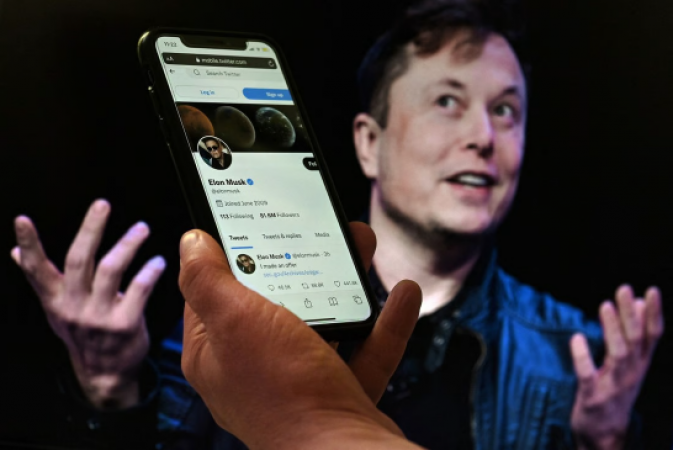
BEIJING: Tesla and SpaceX CEO Elon Musk have talked about turning the social media platform into a "super app" similar to WeChat since agreeing to buy Twitter for US$44 billion, but now those are less flattering. Reasons are compared for:
Suspension of well-known journalists covering the billionaire.
Sam Crane, a Williams College professor of Chinese politics, said on Twitter that "So Twitter is now WeChat."
Twitter's decision to suspend the accounts of more than a dozen journalists for sharing the current location of Elon Musk sparked debate about online censorship.
Also Read: 3 charges are expected to be recommended for Trump on January 6
Some journalists wrote about Twitter's response to the suspension of the @ElonJet account for republishing open-source information about the location of Musk's private plane.
While some Twitter users were quick to point out that the current situation is very different from the widespread censorship regime that exists on platforms such as Weibo and Tencent Holdings' WeChat, the suspensions add new irony to the Chinese social media comparison.
WeChat doesn't suspend multiple accounts that could put someone's life in danger, another user replied to Crane on Twitter. "My WeChat account was repeatedly suspended for sharing Covid information."
Government representatives, advocacy groups and news organizations have voiced opposition to the suspension. Most of the suspensions have already been lifted, but it is no longer possible to access the offending Tweets that mention @ElonJet.
As of Saturday afternoon Hong Kong time, the Twitter accounts of reporters Drew Harwell of The Washington Post, Donny O'Sullivan of CNN, Ryan Mack of The New York Times, Matt Binder of Mashable, Micah Lee of The Intercept, Steve Herman of Voice America Kay, and freelance journalists Aaron Ruper and Tony Webster were all accessible once again. As of the time of publication, Business Insider's Lynette Lopez was still on vacation.
Also Read: Three people were critically hurt in a collision at a London concert venue
There was no immediate response from Twitter seeking comment on Saturday.
While blocking journalists on American social media platforms is unusual, it is common to do so on WeChat and Weibo, which are subject to Beijing's strict censorship rules regarding "harmful information" (often posts critical of the government).
In China, where people have developed a reputation for using pseudonyms to avoid auto-detection, a practice now under threat, it has turned censorship into a cat-and-mouse game between social media users and the authorities. Have given. Censored content often appears on new accounts before being banned again.
While some on Twitter have compared Elon Musk's management of the social network to that of weak-willed Chinese emperors, Musk has insisted that the suspension involving @ElonJet concerned doxing, or gathering private information such as addresses and phone numbers of people. From the publication of
"Any account that docs someone's current location will be suspended because it violates their physical security. This includes tweeting links to websites that provide real-time location data," according to Musk.
Musk has also threatened legal action against Jack Sweeney, a 20-year-old university student and creator of @ElonJet. Sweeney also installed a jet-tracking bot on Mastodon, a distributed microblogging service, which later announced on its official Twitter account that it had been suspended. Mastodon's account has also been frozen.
The Great Firewall brought some attention to the suspension of reporters, but most of the comments focused on Musk. In the West the concept of freedom of the press was the subject of some jokes.
Also Read: 83-year-old self-exiled Philippine communist leader Sison passes away
Perhaps there is more press freedom today, one Weibo user speculated. As of Saturday afternoon, the related Weibo topic had been viewed nearly 2 million times.
Musk defended himself on Twitter, saying the press' "newfound love of freedom of expression" was "so inspiring to see." Musk added a smiling face with a heart emoji at the end of his tweet.